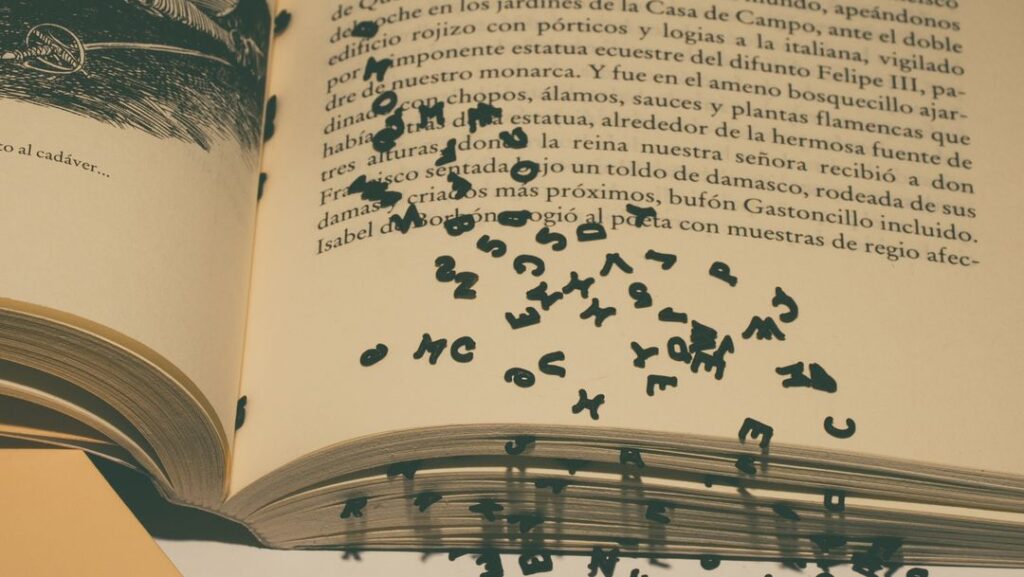What Does Fluff Mean in Writing?
Have you ever heard of the period “fluff in writing? It’s a word that writers often use, however, what does it mean? Let’s dive into it!
Forms of Fluff
Fluff in writing can take many forms. It could be redundant terms, needless adjectives, or beside-the-point data. For instance, as opposed to pronouncing “The brief brown fox jumps over the lazy canine,” a fluff writing example would have you ever say, “The noticeably rapid, chocolate-colored fox energetically leaps over the fantastically indolent canine.” The second sentence, while more descriptive, would not upload any new records and may make the writing fluff experience bloated and tough to examine.
How to Avoid Fluff in Writing?
Writing is an effective device for communique. However, the effect of your writing may be diluted if it’s miles full of needless fluff. Fluff words refer to phrases or sentences that don’t add rate to your writing. They should make your work seem unstructured and puzzling. This article will manual you on the way to keep away from fluff in writing and make your writing more concise and attractive.
Before we delve into how to keep away from fluff in writing, it’s miles vital to recognize what fluffing means. Fluffy words are any content material fabric in your writing that doesn’t contribute to your crucial point or argument. It’s often vague, redundant, or overly complex. Examples of fluff encompass pointless adjectives, redundant phrases, and filler phrases like ‘very’, ‘clearly’, and ‘simply’.
Avoiding Fluff in Writing
Avoiding fluff is vital for clean and powerful writing. It maintains your writing concise and to the factor, making it easier for readers to understand your message. Here are a few hints that will help you avoid fluff:
Stay Focused: Stick to your essential point and avoid going off on tangents. Every sentence ought to contribute to your typical message.
Be Concise: Use the most effective, trustworthy way to carry your thoughts. Avoid overly complex sentences and large words while less difficult ones will do.
Edit Ruthlessly: After writing your piece, pass back and search for areas where you could get rid of or condense information without losing any meaning.
Why Avoid Fluff in Writing?

The fluff should make your writing uncertain and hard to study. It also can make your paintings appear much less credible. By averting fluff in writing, you could make your writing greater concise, clean, and engaging. This allows you to efficaciously talk about your thoughts and arguments.
Strategies to Avoid Fluff
Plan Before You Write: Before you start writing, outline your predominant factors. This permits you to live centered and avoid going off-topic.
Be Specific: Instead of using indistinct or trendy phrases, be precise. This ought to make your writing greater informative and thrilling.
Avoid Redundancy: Don’t repeat the identical issue in precise terms. If you have already made a component, go with the flow at once to the subsequent one.
Use Simple Language: Avoid using complex phrases or phrases while simple ones will do. This could make your writing less difficult to comprehend.
How do you Identify Fluff in Writing?
Fluff in writing may be a tricky factor to identify. It’s like a chameleon, mixing into the text and making it seem longer and more complicated than it needs to be. But how do you perceive it? Let’s discover!
Before we will perceive fluff, we need to recognize what it’s miles. As we mentioned in advance, fluff in writing is any content material that doesn’t add a price to the writing. It’s just like the extra toppings on a pizza that do not beautify the taste but just make it more difficult to devour.
Spotting the Signs of Fluff
Fluff in writing may be sneaky, but some telltale symptoms permit you to spot it:
Redundancy: If you are announcing the same component again and again in unique approaches, that is fluff in writing. Each sentence must convey something new to the desk.
Overuse of Adjectives and Adverbs: While adjectives and adverbs can add detail to your fluff in writing, the use of too many can make your writing experience bloated and overcomplicated.
Irrelevant Information: If a chunk of records doesn’t contribute to your fundamental point or argument, it’s in all likelihood fluff.
Strategies to Identify Fluff
Now that we understand what to look for, how can we cross approximately identifying fluff in writing? Here are some techniques:
Read Aloud: Sometimes, hearing the words can make it less difficult to identify redundancies and pointless info.
Ask Questions: For each sentence, ask yourself, “Does this add to my main point
Use a Fresh Pair of Eyes: Having a person else read your paintings can help pick out regions of fluff that you might have overlooked.
What Does Fluff Mean in Books?
In the arena of literature, terms regularly tackle meanings past their dictionary definitions. One such term is ‘fluff’. While it would conjure photos of clean feathers or cotton sweet, within the context of books, ‘fluff in writing’ has a completely precise connotation. If you are looking for professional help, you can consider hiring a expert book writing company.
The Role of ‘Fluff in Writing’
Fluff performs an important function in literature. It offers harm from the heavy, concept-frightening content material. Just as we want mild-hearted sitcoms amidst immoderate dramas on television, we need fluff in writing books amidst profound, complicated literature. They offer a shape of escapism, allowing readers to dive right into an international free from real-lifestyles challenges and hardships.
Characteristics of ‘Fluff’
Fluff in writing books is characterized by way of their simplicity and positivity. They frequently revolve around romance, friendships, or non-public increases. The conflicts in those books are generally low-stakes and without issues resolved, presenting a sense of consolation and delight to the reader.
The Appeal of ‘Fluff’
Fluff appeals to a wide form of readers. For more youthful readers, fluff in writing books may be a splendid access point into the area of literature. They’re to be had, engaging, and assist in domesticating a love for reading. For adults, fluff in writing serves as a cute diversion from the complexities of life.
Fluff Definition in Writing
In the world of literature, there may be a term that regularly comes up when discussing different styles and genres. This term is ‘fluff in writing’ But what precisely does ‘fluff’ suggest in writing? Let’s delve into this fascinating concept.
Within the Context
When we talk approximately ‘fluff in writing’ within the context, we’re referring to content material that is light-hearted, smooth to study, and frequently emotionally uplifting. It’s akin to the literary model of consolation food – it’s simple, gratifying, and leaves you with a warm, fuzzy feeling.
Fluff in writing is characterized by way of its simplicity and positivity. The narratives are typically honest, with relatable characters and conditions. The conflicts, if any, are low-stakes and resolved in a way that brings consolation and pleasure to the reader.
Fluff can be determined across numerous genres, however, it is particularly generic in romance, young grownup, and certain forms of fan fiction. In those genres, fluff in writing pieces is often awareness of romantic relationships or friendships, with masses of heartwarming moments and happy endings.
Global Experience of Fluff in Writing
Fluff in writing plays a significant position in the literary global. It gives a respite from greater extreme or complex narratives, presenting readers an opportunity to loosen up and revel in an easy, experience-excellent tale.
Writing fluff is an artwork in itself. It requires the capability to create enticing, likable characters and situations that readers can without problems connect with. The language used is commonly easy and conversational, making it reachable to an extensive variety of readers.
Magic of Fluff for All Ages
Appeals to readers of all ages by fluff in writing. For more youthful readers, fluff in writing can function as a wonderful introduction to the world of literature. It’s engaging, smooth to understand, and can help foster a love for analyzing. For older readers, fluff offers a lovely getaway from everyday life’s complexities and demanding situations.
Like any genre, fluff has its critics. Some argue that fluff in writing lacks depth or substance. However, it’s important to recollect that now not all writing wishes to be profound or concept-upsetting. Sometimes, a simple, heartwarming story is just what a reader desires. With the upward thrust of digital structures, fluff in writing has found a new domestic on the net. Websites and apps dedicated to user-generated memories have visible a surge in fluff portions, further cementing its location in current literature. The destiny of fluff in writing seems promising. As long as readers search for mild-hearted, uplifting content, fluff will preserve an area within the literary international.




